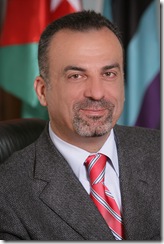Oman mobile reseller Renna Mobile has announced that during the course of last month it reached operational break even (EBITDA).
“We reported our first full month of positive cash flow on our operation in Oman in June,” Joakim Klingefjord, Renna Mobile CEO said. “This is obviously a very crucial milestone for us since we are able now to show to our shareholders, employees and other stakeholders alike that the MVNO model actually does work in this part of the world also.”
Renna Mobile launched operationally in May 2009 after having secured a wholesale agreement with Omantel and a Class II mobile reseller license from the telecom regulator.
Renna Mobile has expressed its interest to expand into territories beyond Oman for the first time
Klingefjord claims the operator’s focus on operational efficiencies and cost prudence have been the major reasons Renna Mobile is the first MVNO in the Middle East to be able to announce a positive cash flow from its operation.
“With the positive cash flow, we are really geared towards expansion which will take us forward in our position in Oman, as well as using this as a platform for launching elsewhere in the region,” Klingefjord said. “Our mobile broadband offers are very well received in the market and our latest triple play has great customer value that has also been recognised by our users.”
At the end of May, it was announced that a further two telecommunication companies are reported to be seeking government licences to offer mobile reseller services in Oman.
Awasif Company was said to be seeking a licence to operate as a mobile reseller, while Madakhil was looking to provide mobile telecommunication services to fishermen.
Should the applications be granted, this would raise to seven the number of companies in Oman licensed to operate as resellers. Current licensees are Friendi Mobile, Renna, Mazoon, Injaz and Samatel.




